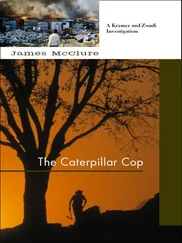James Mcclure - The Sunday Hangman
Здесь есть возможность читать онлайн «James Mcclure - The Sunday Hangman» весь текст электронной книги совершенно бесплатно (целиком полную версию без сокращений). В некоторых случаях можно слушать аудио, скачать через торрент в формате fb2 и присутствует краткое содержание. Жанр: Полицейский детектив, на английском языке. Описание произведения, (предисловие) а так же отзывы посетителей доступны на портале библиотеки ЛибКат.
- Название:The Sunday Hangman
- Автор:
- Жанр:
- Год:неизвестен
- ISBN:нет данных
- Рейтинг книги:3 / 5. Голосов: 1
-
Избранное:Добавить в избранное
- Отзывы:
-
Ваша оценка:
- 60
- 1
- 2
- 3
- 4
- 5
The Sunday Hangman: краткое содержание, описание и аннотация
Предлагаем к чтению аннотацию, описание, краткое содержание или предисловие (зависит от того, что написал сам автор книги «The Sunday Hangman»). Если вы не нашли необходимую информацию о книге — напишите в комментариях, мы постараемся отыскать её.
The Sunday Hangman — читать онлайн бесплатно полную книгу (весь текст) целиком
Ниже представлен текст книги, разбитый по страницам. Система сохранения места последней прочитанной страницы, позволяет с удобством читать онлайн бесплатно книгу «The Sunday Hangman», без необходимости каждый раз заново искать на чём Вы остановились. Поставьте закладку, и сможете в любой момент перейти на страницу, на которой закончили чтение.
Интервал:
Закладка:
“A filling is plenty painful, Sergeant?” he inquired, with genuine curiosity.
“I don’t mind them-but my brother does. Hates the drill. It scares a lot of people.”
“Hau! Then maybe this skeleton boss was forced to have this filling done to him.”
“What?”
“He was forced,” Zondi repeated respectfully. “This treatment was not a matter of his own free will.”
Marais turned in the doorway, laughed, and said: “Forced? Trust a coon to think of that! Nobody forces you to do things with your teeth you don’t like, man! Have some bloody sense.”
Zondi laughed, too, then put his leg back on the table. He was sure he had something there, somewhere.
11
The best person to see about the unlamented railway foreman, everybody said, was good old Joep Terblanche. He’d hated the bastard. Hated him right down to his little blue socks, and then some. If, in fact, the good Lord hadn’t finally made Rossouw do the decent thing, then Joep would have seen him off personally. It had been as bad as that. And nobody could blame him.
Dear God, thought Kramer.
To find Joep, you had to try the bowls club, the jukskei pitch, the tennis club, and the fishing club’s stretch of trout water. Having run through all the amenities of the dorp of Olifantsvlei by then, there was just a chance he might be at home.
It started to rain heavily, so Kramer drove straight round.
The former station sergeant of Olifantsvlei, retired these three years on full pension, was living modestly in a tin-roofed bungalow overhung by tall pawpaw trees and their overripe fruit. The broad leaves shed by the Chinese fig tree lay undisturbed on the garden bench, and a pair of secateurs were rusting, forgotten, on a homemade sundial in the middle of the small, unkept lawn. It was also significant that the tracks down the clay driveway stopped at a point nearest to the front verandah, and that the garage, some ten yards farther on, had weed growing high against its dull green doors. Good old Joep, all this suggested, was a widower-and a fairly recent one at that, who hadn’t grown accustomed to his solitude.
Kramer made a dash for the verandah, and reached it with his hair plastered down. He gave the front door a rap. Something inside, either a ghost or a cat, set a dish clattering.
Then a battered Land-Rover chugged in at the gate and the whole feel of the place changed. Big and beaming, broad enough to wear a barrel without needing braces, Joep Terblanche came doubling across; two fish dangled from his left hand, and in his right he carried a six-pack.
“Caught in the act!” he said, tossing the fish aside onto a verandah table. “Lieutenant Kramer, here on business-am I right?”
The bush telegraph in Olifantsvlei was obviously not to be sniffed at. Kramer shook the outstretched hand, approved the firm grip, and told himself to come off guard. The man had a simple and tangible goodness as pronounced as freshly baked bread.
“I’m here to ask a few questions about one of your old cases,” he said.
“Ja, so I hear. Man, it’s a pity my sister has passed on, or she could really tell you a thing or two about Toons Rossouw! Like to come inside?”
They went through into a kitchen that had a strong under-smell of cockroach powder and very few signs of food. When Terblanche opened the cupboard to remove two glasses, only breakfast cereal packets were exposed, and it was reasonable to suppose that he now took his main meals with some family living nearby.
A sodden crash resounded loudly on the tin roof overhead, making Kramer glance up.
“Pawpaw.” Terblanche grinned. “The rain knocks them down.”
“Christ, I thought a bloody maternity stork had dropped its load.”
Terblanche frowned slightly, as though disapproving of that kind of humor-or perhaps it was that he just didn’t understand it. Then he smiled again, handing Kramer his beer and inviting him to be seated.
“Naturally, I’m curious to know why the interest in Toons Rossouw all of a sudden, Lieutenant.”
“You’re well rid of us now, man, so let’s make that ‘Tromp.’ ”
“I prefer ‘Joep’ myself.”
“Fine,” said Kramer, still stalling; his instincts were insisting that he play this one very cool. “Ever heard of Witklip?”
“Certainly. It’s that little place north of-y’know.”
“I’m involved in a murder inquiry there, and Rossouw’s name has cropped up in some of the past history. We don’t know exactly what it’s got to do with anything, so we hoped-by trying our luck this end-we might find out.”
“Witklip?” murmured Terblanche, twisting the tips of his graying moustache between thumb and finger. “I can’t see any connection either. Male or female involved?”
“Would you like to guess?”
“Huh! A woman, of course. But the railway doesn’t go anywhere near the place, and Toons stuck very much to this dorp, as far back as I can remember.”
“What was the story about him, Joep?”
“One you’ve heard before, that I’m sure of. He was a drunk, a fighter, a thief-when he got the chance-and a proper bad bastard all around. So who should agree to marry him? A little girlie he could crush the ribs of in one hand. Personally-and my sister Lettie also shared this opinion-the marriage was the minister’s fault.”
“Shotgun?”
“Hell, no!” said Terblanche, quite shocked. “Stefina came of a good family; poor like kaffirs, but good. He most probably thought she would reform him.”
This was indeed the old, old story. They clinked glasses and drank.
“Nobody can say that little girl didn’t try,” Terblanche went on. “Others in the community tried for them also. Oom Dawid let Toons rent a shack on his property, and Lettie went round collecting up old curtains and suchlike. The place wasn’t much, yet Stefina made it look as pretty as a picture from the catalogue. You could stop by there anytime, I’m telling you. The little black stove would be shining, there would be coffee in the pot, and always wild flowers in a jam bottle on the table given by the minister himself. I think you call it a card table, with folding legs; anyhow, it wasn’t fitting for his position.”
“And they lived miserably ever after?” Kramer asked.
“Ever after,” sighed his host, “until, of course, what happened came to pass. He was clever that one-oh, ja. The first time he took his belt to her, he was lucky and one of my men let him off with a warning. After that, when he came back drunk, or from his womanizing, he’d find ways of never leaving a mark. ‘Stefina,’ I would say-because Oom Dawid would always call me when he heard the screams-‘Stefina, you just make a charge and the doctor is sure to find marks.’ But she would shake her head. Not an ugly girl, you understand, although, in the eyes of some folk, a little on the plain side. It was her bones, man-bones like a little bird. To think of him beating her took you in the stomach. I tell you, when I got a chance, and had to have Toons in my lockup for the night, then he went in there off all four walls and the bloody ceiling. Mind you, like him, I had to be careful.”
Kramer drank to the irony of that.
“I wanted to slap charges on him-any bloody charges, so long as he’d be put away inside. But Lettie asked what would happen to Stefina then, out in the shack alone, with kaffirs all around, and the magistrate followed a similar line, giving him long lectures. They all wanted this dream of theirs- ach , I don’t know what to call it-to work out as it was planned and make them all happy. Never mind Stefina in the meantime! I watched her turning to a shadow of the happy kid I had known. The round cheeks and big dimples and-hell, it was terrible. She’d sit in the church on Sunday, reading her Bible like it would put blood back in her veins. Then she became pregnant.”
Читать дальшеИнтервал:
Закладка:
Похожие книги на «The Sunday Hangman»
Представляем Вашему вниманию похожие книги на «The Sunday Hangman» списком для выбора. Мы отобрали схожую по названию и смыслу литературу в надежде предоставить читателям больше вариантов отыскать новые, интересные, ещё непрочитанные произведения.
Обсуждение, отзывы о книге «The Sunday Hangman» и просто собственные мнения читателей. Оставьте ваши комментарии, напишите, что Вы думаете о произведении, его смысле или главных героях. Укажите что конкретно понравилось, а что нет, и почему Вы так считаете.












